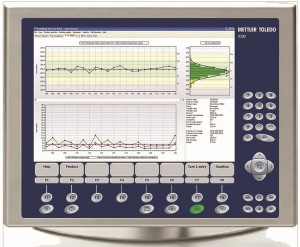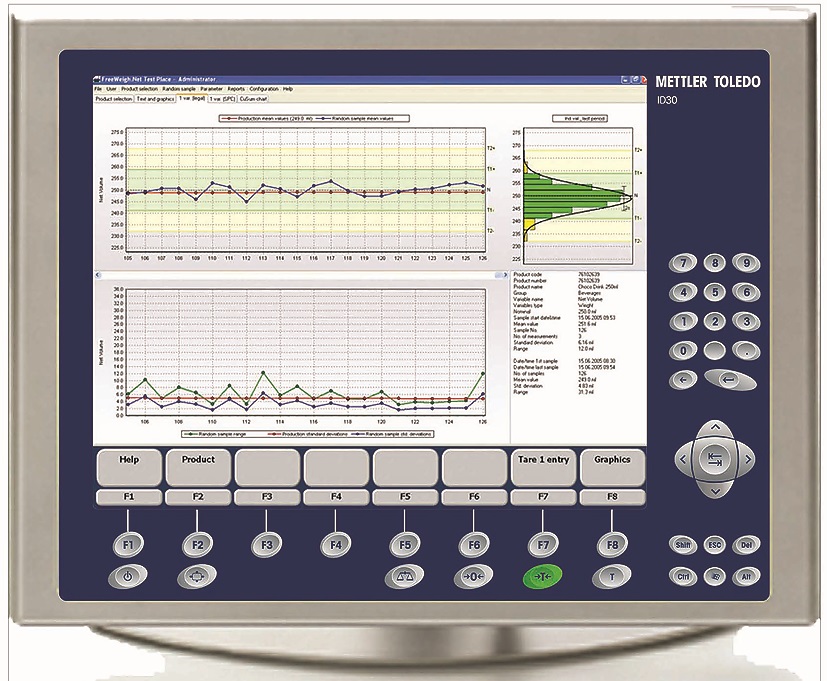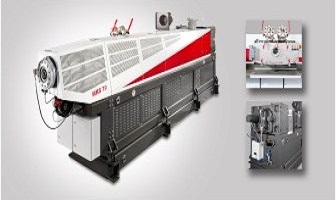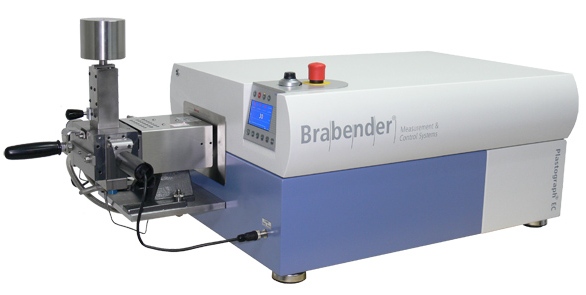
Greifensee–20th May 2013 – Billions of consumer packages flow from assembly lines every day, each one required to state the precise net weight, volume or number of pieces of its contents.
To avoid consumer and legal issues that may arise if net weights fall below specifications, manufacturers often overfill bottles, jars, tubes, boxes and cans, incurring significant costs from unnecessary product giveaway. By implementing a robust statistical quality control (SQC) system, manufacturers can cut losses and enhance compliance. Mettler-Toledo clarifies the benefits of SQC systems in its new white paper, entitled “Package Quality Control – Net Content Control.”
SQC systems apply statistical methods to process control, accurately calculating mean and standard deviation values as well as legally-defined tolerance limits. Using a data management framework based on SQC provides packagers with real-time assessments of production quality, detecting and correcting variations that occur during the packaging process. Mettler-Toledo’s white paper provides guidance on how a data management framework based on SQC can realize a return on investment within 12 months following implementation.
SQC systems are easy to operate, optimize production and require minimal training. Through random sampling of data, SQC systems generate comprehensive quality control information, offering superior accuracy and repeatability when compared to 100 percent product inspection with dynamic checkweighers. An SQC framework offers reliable and objective data for determining optimum filling quantities regardless of control systems that are in place. It also minimizes product giveaway caused by excessive overfilling, and ensures that batches meet legal requirements.
Mettler-Toledo’s white paper also addresses critical design considerations when implementing a quality control system. Systems should have intuitive and flexible interfaces, data connectivity with industry standard Ethernet and TCP/IP protocols, and easy access to production parameters. The white paper also outlines a five-step approach for gaining quality information through a well-designed solution.
About METTLER TOLEDO:
METTLER TOLEDO is a leading global manufacturer of precision instruments. The Company is the world’s largest manufacturer and marketer of weighing instruments for use in laboratory, industrial and food retailing applications. The Company also holds top-three market positions in several related analytical instruments and is a leading provider of automated chemistry systems used in drug and chemical compound discovery and development. In addition, the Company is the world’s largest manufacturer and marketer of metal detection systems used in production and packaging. Additional information about METTLER TOLEDO can be found at “www.mt.com.”







